Ever felt utterly humiliated? Vulnerable? Exposed? Ever felt so ashamed that you wanted to just run away and hide in a cave where no one would ever find you? We’ve all been there thanks to this intense emotion called shame. Let’s explore the psychology of shame and understand this often-hidden emotion.
Psychology of Shame: Unmasking The Silent Whisper of Self-Criticism
Shame is a universal yet complex human emotion that arises from a deep sense of inadequacy or unworthiness. Unlike guilt, which focuses on specific actions, shame targets our very essence and can permeate every aspect of our lives.
Shame is the feeling that we have fallen short of social or personal expectations, leading to self-judgment and a belief that we are fundamentally flawed.
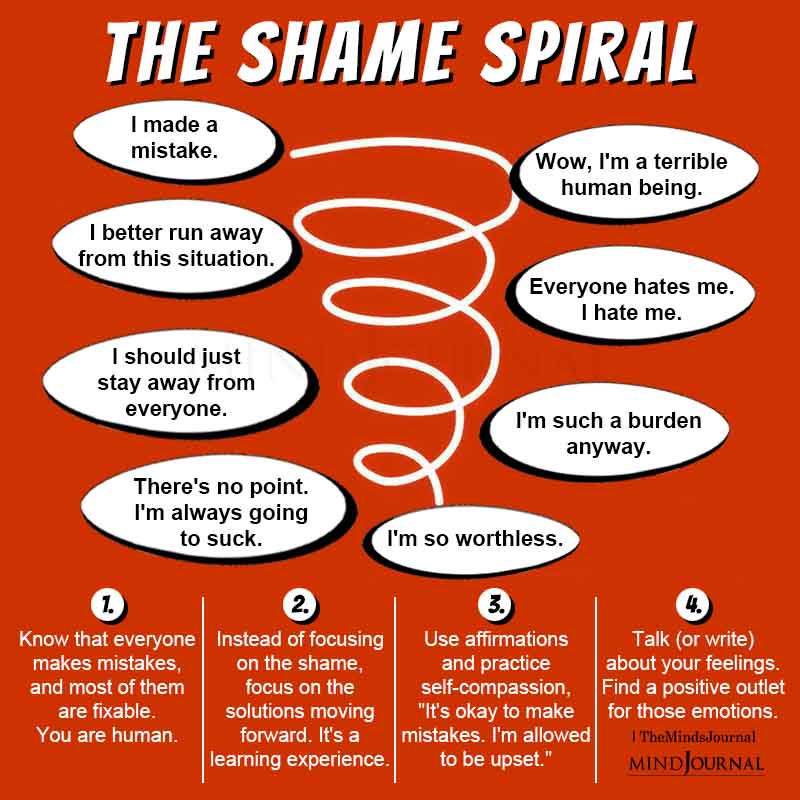
One study defines shame as an intense negative emotion marked by the devaluation of oneself. It is often caused by social events where our personal status is reduced or a feeling of rejection is sensed. Shame has “many effects related to psychological functioning declines, and one among others is the fluctuation of self-esteem,” adds the study.
Related: What Is Toxic Shame? How It Alters Our Self-Image
According to researchers of the psychology of shame, it is a secondary self-conscious emotion that includes self-reflection and self-evaluation. While it can be triggered by moral transgressions and social norm violations, it is also linked to the corporeal, bodily self.
The researchers believe that shame can also be described as “maladaptive,” as it “encourages dysfunctional behaviors, particularly behavioral avoidance.”
Shame is a “powerful emotion that can cause emotional distress, impaired empathy, social isolation,” and unpredictable behavior, according to a 2020 study. It is a “normal, negative self-conscious emotion” that occurs when a person engages in self-analysis and “attributes a triggering event to a global deficiency of the self.”
The person may feel unworthy, deficient, and flawed and may avoid certain actions. Shame can result in isolation and withdrawal and can result in impaired empathy, anxiety, depression, and post-traumatic stress disorder (PTSD).
Roots of Shame: Nature and Nurture
Shame can be traced back to both innate human tendencies and environmental influences. Evolutionarily, shame may have served as a safeguard, promoting adherence to social norms and preventing behavior that could lead to exclusion from the group.
Moreover, childhood experiences, such as critical parenting or traumatic events, can shape an individual’s susceptibility to shame.
How Shame Impacts Us
Shame can have a serious impact on our mental and emotional well-being. Here’s how shame can affect our thoughts, emotions, and behaviors –
1. Emotional and Psychological Impact
The psychological impact of shame can be profound, affecting various aspects of our lives. Shame evokes feelings of worthlessness, leading to low self-esteem, depression, and anxiety.
It can create a negative self-image and impair our ability to form meaningful connections with others. The fear of being exposed or judged can result in social withdrawal and isolation.
2. Behavioral impact
Shame has a powerful influence on our behavior, often driving us toward self-destructive patterns. Some individuals may engage in excessive people-pleasing, constantly seeking external validation to alleviate their feelings of shame.
Others may resort to defensive mechanisms, such as aggression or blaming others, as a means of deflecting their internalized shame.
Related: The 5 Causes of Shame
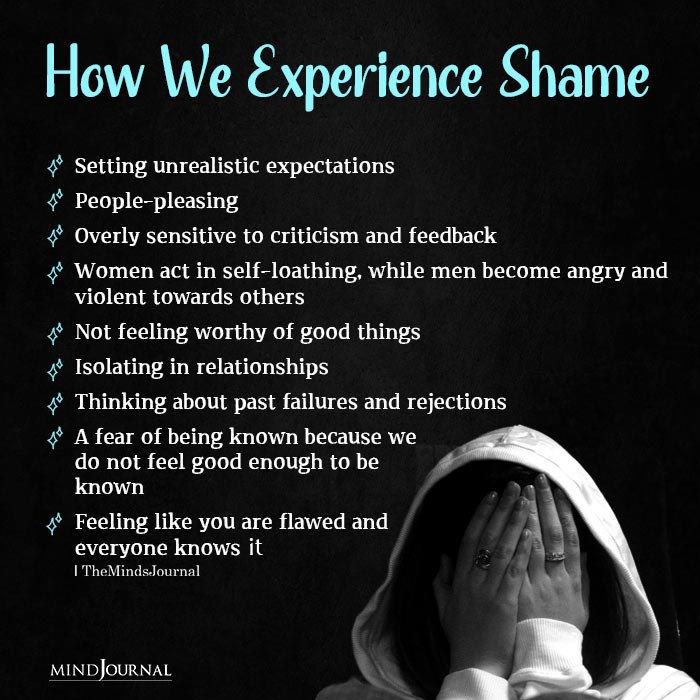
9 Symptoms of Shame You Must Not Ignore
Symptoms of shame can manifest in various ways, both internally and externally. It’s important to note that individuals may experience shame differently based on their personality, upbringing, and life experiences.
Here are some common symptoms of shame:
1. Emotional Distress
As per the psychology of shame, it often triggers intense negative emotions, such as embarrassment, humiliation, worthlessness, and self-disgust. These emotions can be overwhelming and may lead to feelings of sadness, anger, or anxiety.
2. Physical Sensations
Shame can also be accompanied by physical sensations. Some individuals may experience a racing heart, sweating, blushing, or a sinking feeling in the pit of their stomach. These physiological responses are the body’s natural reaction to the distress caused by shame.
3. Self-isolation and Withdrawal
Shame tends to make individuals want to hide or withdraw from social interactions. The fear of being exposed or judged can lead to isolating oneself, avoiding social situations, or becoming overly self-conscious in the presence of others.
4. Negative Self-Talk
Shame often fuels a harsh inner critic. Individuals experiencing shame may engage in negative self-talk, constantly berating themselves, and reinforcing their feelings of inadequacy. This negative self-talk can further perpetuate the cycle of shame and erode self-esteem.
5. Perfectionism
Some individuals respond to shame by striving for perfection in an attempt to avoid further feelings of shame or judgment. They may set unrealistic standards for themselves, constantly seeking external validation, and fearing failure or criticism.
6. Defensive Behavior
Shame can lead to defensive behaviors as a way to protect oneself from further shame or judgment. This can manifest as defensiveness, aggression, or blaming others in an attempt to deflect attention away from one’s own perceived shortcomings.
Related: How Does Shame From Toxic Childhood Stress Still Harm Us?
7. Impaired Relationships
The psychology of shame reveals that it can have a significant impact on interpersonal relationships. Individuals experiencing shame may struggle with vulnerability and intimacy, fearing rejection or abandonment.
They may have difficulty trusting others, have a heightened sensitivity to criticism, or have a tendency to push people away. This is one of the primary symptoms of shame.
8. Low Self-Esteem
Chronic shame can erode an individual’s sense of self-worth. They may develop a negative self-image, feeling fundamentally flawed or inadequate. This can lead to low self-esteem, a poor self-concept, and a diminished belief in their abilities and values.
9. Avoidance of Shame Triggers
Individuals experiencing shame may go to great lengths to avoid situations, people, or activities that trigger their feelings of shame. This avoidance can limit personal growth, restrict opportunities for self-expression, and contribute to a sense of stagnation or dissatisfaction in life.
It’s important to remember that experiencing occasional feelings of shame is a normal part of being human. However, if shame becomes chronic, overwhelming, or significantly impacts daily functioning, seeking support from a mental health professional can be beneficial in addressing and managing these symptoms effectively.
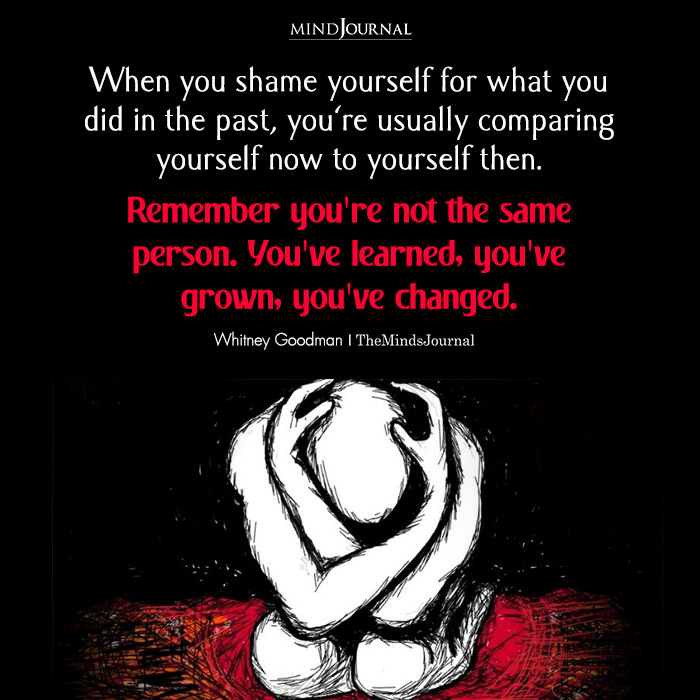
Coping with Shame: 9 Tips for Overcoming Shame
While shame can have a significant impact on us, you can take certain steps to overcome shame and protect your mental and emotional health. Here are some helpful tips that you should consider, based on the psychology of shame –
1. Recognize and Acknowledge Shame
The first step in coping with shame is to recognize and acknowledge its presence. Become aware of the physical and emotional sensations that accompany shame, and identify the triggers or situations that tend to evoke this emotion within you.
2. Practice Self-Compassion
Cultivating self-compassion is crucial in overcoming shame. Treat yourself with kindness and understanding, recognizing that everyone experiences feelings of shame at some point.
Replace self-criticism with self-acceptance, and remind yourself that imperfections and mistakes are a part of being human.
3. Challenge Shame-Based Beliefs
Examine the beliefs and thoughts that underlie your feelings of shame. Are they realistic or distorted? Challenge negative self-talk and replace it with more balanced and compassionate perspectives. Remind yourself of your worth and value as an individual.
4. Seek Support
Reach out to trusted friends, family members, or a therapist who can provide a safe and non-judgmental space for you to share your experiences of shame. Connecting with others who can offer empathy, validation, and support can be instrumental in healing from shame. This is a crucial step in coping with shame.
Related: Shame Anxiety: What Role Does Shame Play In Anxiety?
5. Practice Vulnerability
According to the psychology of shame, it thrives in secrecy and isolation. Engage in open and honest communication with others, expressing your feelings and experiences. This vulnerability allows for deeper connections and fosters a sense of acceptance and belonging.
6. Challenge Unrealistic Standards
Often, shame arises from holding ourselves to unrealistic standards of perfection. Embrace the idea that making mistakes and having flaws is a natural part of the human experience. Set realistic expectations for yourself and celebrate your progress and achievements, no matter how small.
7. Learn from Mistakes
Instead of allowing shame to paralyze you, view mistakes and failures as opportunities for growth and learning. Take responsibility for your actions, make amends when necessary, and focus on how you can do things differently in the future.
8. Practice Self-Care
Engage in activities that promote self-care and self-nurturing. This can include engaging in activities you enjoy, practicing mindfulness or meditation, engaging in physical exercise, getting enough rest, and surrounding yourself with positive influences.
9. Reframe Shame as a Teacher
Shift your perspective on shame and view it as a teacher rather than an enemy. Explore the lessons that shame can offer you about your values, boundaries, and areas for personal growth. Use the experience of shame as an opportunity for self-reflection and self-improvement.
Remember, coping with shame is a process that takes time and self-compassion. Be patient with yourself and celebrate the progress you make along the way. With practice, you can develop resilience and a healthier relationship with yourself, free from the burdens of shame.

Takeaway
The psychology of shame reveals that this often-hidden emotion has far-reaching effects on our lives, impacting our self-worth, relationships, and overall well-being. By understanding the origins and dynamics of shame, we can begin to heal its wounds and cultivate a healthier relationship with ourselves and others.
Remember, you are not alone in your experiences of shame, and by embracing vulnerability, self-compassion, and connection, you can break free from shame’s suffocating grip and embark on a journey of self-acceptance and growth.
Related: How To Get Over An Embarrassing Moment?
Frequently Asked Questions (FAQs):
What are the four types of shame?
The four types of shame are internal, external, acute, and chronic, each varying in intensity and duration of experience.
What is the root emotion of shame?
Shame often stems from the feeling of inadequacy, unworthiness, or failure, triggered by social evaluation or self-criticism.
What is the psychology of shame theory?
The psychology of shame theory suggests shame arises from a perception of violating social norms or personal standards, leading to self-condemnation.
What is the psychological treatment for shame?
Psychological treatment for shame involves therapy modalities like cognitive-behavioral therapy (CBT), compassion-focused therapy (CFT), and acceptance and commitment therapy (ACT).
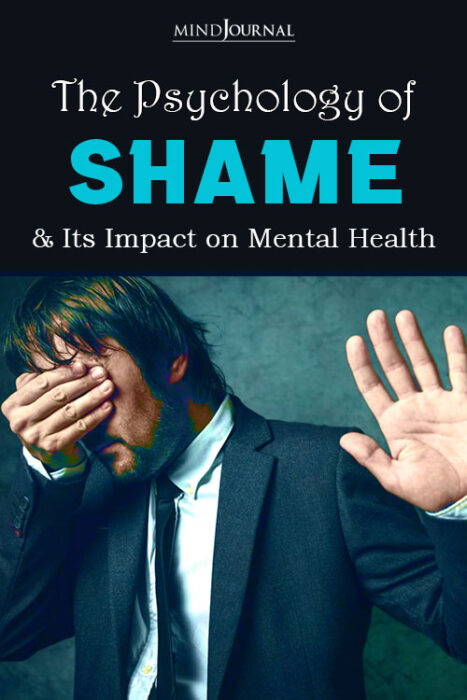
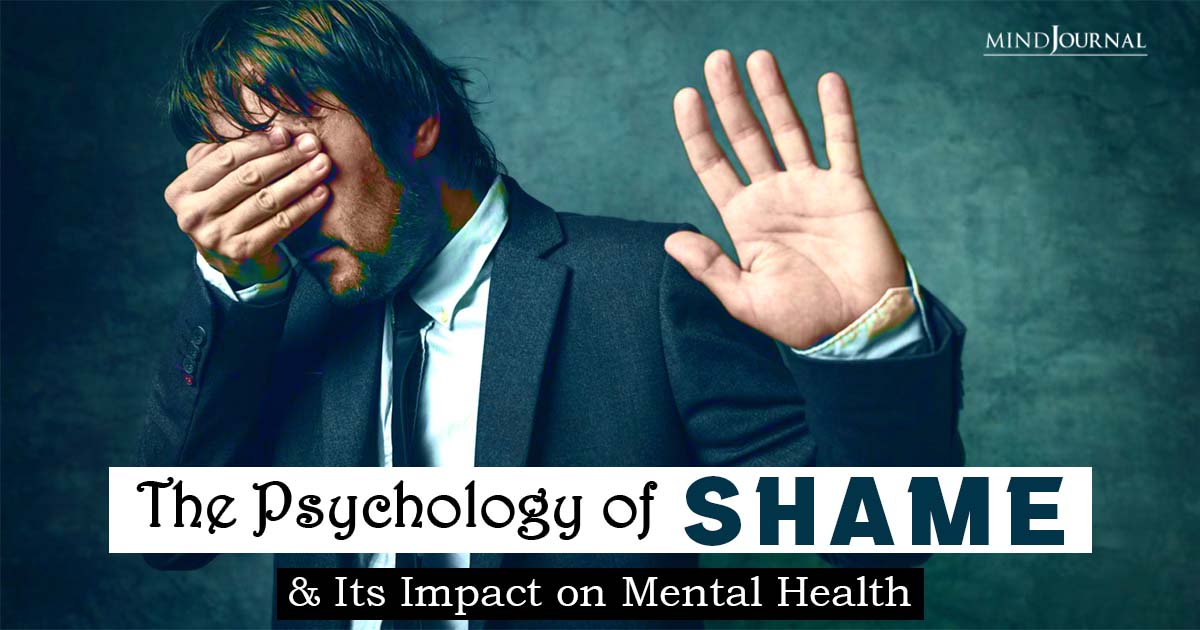





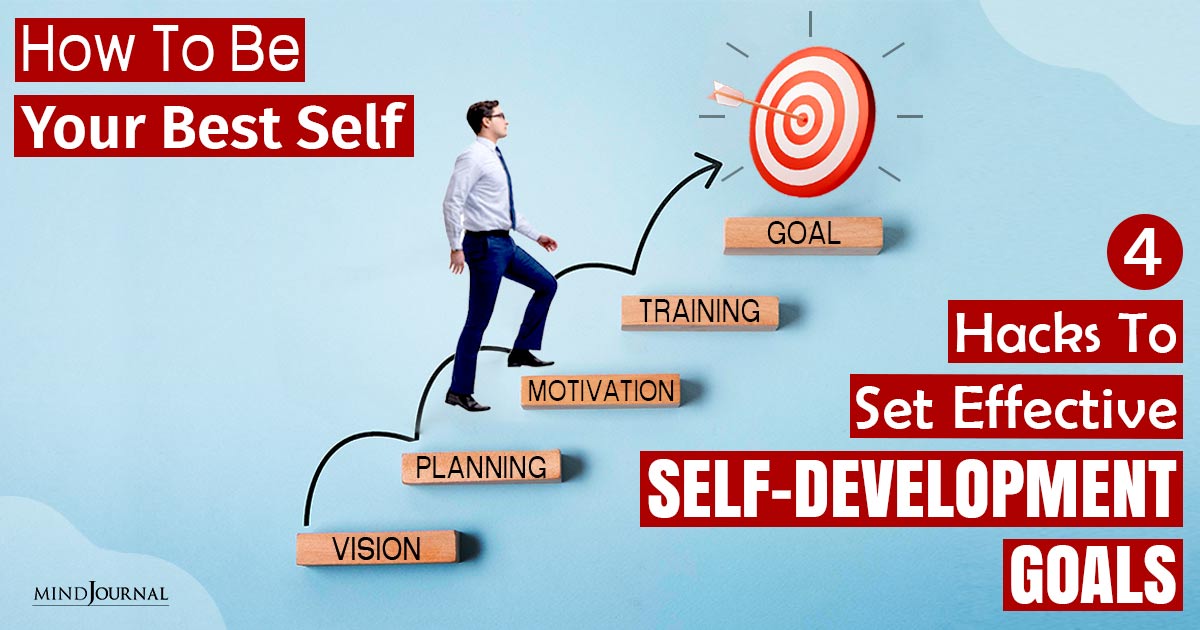

Leave a Reply
You must be logged in to post a comment.